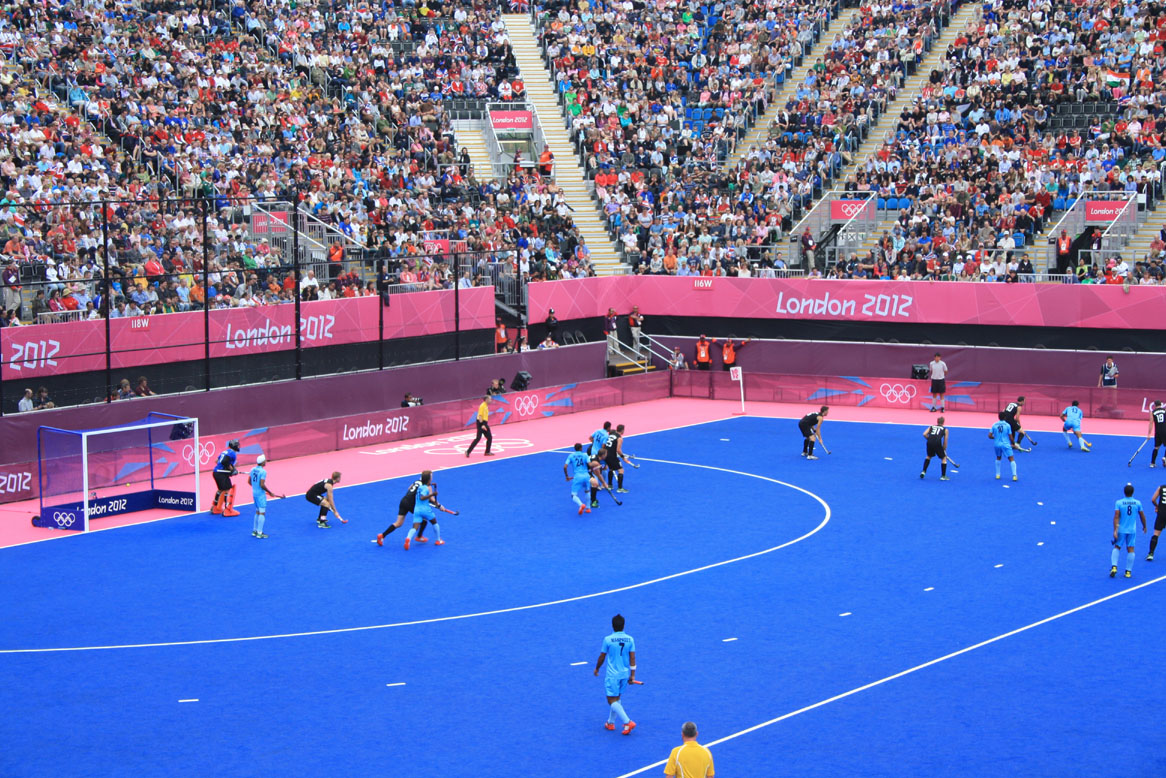Oh India, always there but never were
Share
“Oh India”, after a long pause, he continued: “Always there but never were”
These were the words of Roelant Oltmans uttered 14 summers ago.
It was a chance air encounter that I met India’s present coach in2002. After changing flight at KLIA, I found Roelant Oltmans in the Cathy Pacific flight going to Perth, where Women’s World Cup was staged.
He was with his radio-jockey friend. We three discussed a lot on hockey, when it meandered to Indian men’s Olympics and on how India narrowly missed the semis at Sydney, he said those words.
How true.
India may not have won any medal at Olympics in a full field after 1972, but, barring 1992 and 2012, it was almost there for the semis till the last pool match of every Olympics. India played all but Beijing Olympic number.

1976: India and Australia had same points after they finished their pool matches. The same Indians who lost to the Oceania giant 1-6 in the pool, were a transformed side. The match ended in a draw. India lost the tie-break with Ajit Singh, father of Gagan Ajit, missing out while the last chance of Australia was lapped by Ric Charlesworth. Tie-break result can go either way, it’s a spin of coin kind. Its an unlucky exit for Indians at Los Angles, but the world blamed for the just introduced Synthetic turf for all Indian woes.
1980: India won the gold against Spain in the final score 4-3.
1984: Germany qualified from Indian pool on goal difference. India defeated Malaysia 3-0 while Germany playing after India thrashed them for 5-0. Coach Balkrishan Singh said many times it was not a normal match but ‘fixed’ one. With this background, Germany and India played their match, that is between them which ended 0-0 draw. Both teams had three wins and a draw, but Germany made it on better goal aggregate than India. Whatever, India was not there in the semis because of lesser goal aggregate.
1988: India needed a draw in the last pool match to enter the semis as the second placed team in its pool. It was against previous edition bronze medallists Great Britain. Halftime score was 0-0. India, despite playing Mohd. Sahid in this half, failed to strike. But Sean Kerly came up with trump, and saw India punctured thrice. However, India lost its cause in the first match itself when it went down 0-1 to novice Russia. This goal was as a result of age-old indiscipline from Indian side. The Indians were demanding a foul from umpire surrounding him, but the Russian forward made his move and struck! Even a draw in the first match would have seen India in the semis. So near but so far.
1992: Worst ever Indian Olympic performance ever.
1996: The Atlanta Olympics is almost rerun of Los Angeles’. A bad start undid all good subsequent performance. A chance goal by Jorgi Lombi went unanswered till the full time in the opener. India thereafter drew Germany 1-1, which was a great result. Remember Stephen Saliger equalized India just four minutes before the hooter. India then beat USA, drew Pakistan 0-0 despite dominating, and then hammered ultimate silver medallist Spain3-1. Less of a point, missed the semis.
2000: India put up by far the best Olympic performance after 1972. India needed a win in its last pool match over lowly rated Poland to lock horns against Pakistan in the semis, and push out Korea from second position in its own pool. There was two-day rest. On the crucial day, there were heavy rains. India was leading by a goal, but a lapse from captain Ramandeep Singh saw the sluggish Polish levelling. After that in the remaining six, seven minutes Mukesh Kumar had two clear chances to strike and settle the issue, but mis-fired. Match ended 1-1 draw. Had it been 2-2 draw India would have still made it. Korea took India’s place on the count of winning India in the league. Otherwise, both teams had same points, Goal aggregate, Goal difference etc.
2004: Statistically India got just four points after five matches, but the encounters were close. Losing to New Zealand and then drawing Argentina put paid to Indian challenge. Even in losing to the Dutch in the opener (1-3), the Indians turned out to be good fighters.
So, the story of oh you are always there but not is a true history of second part of Indian Olympic story.



